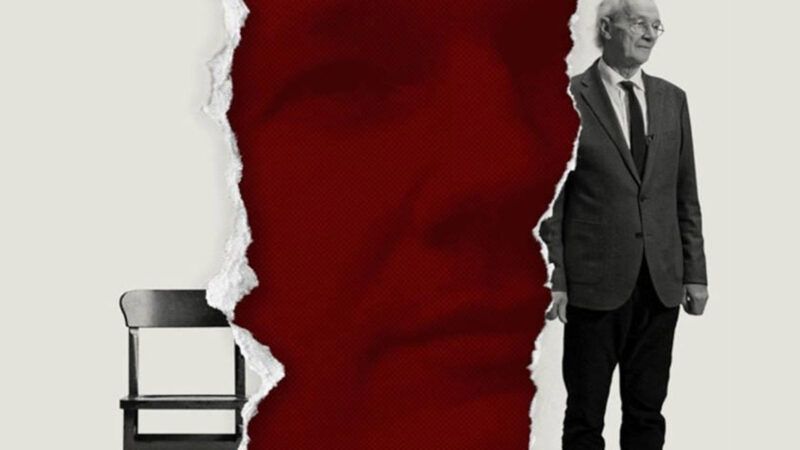Review: Ithaka Chronicles the Fight To Save Julian Assange
"If he goes down, so will journalism," Assange's father John Shipton says in the documentary.

When a British judge temporarily blocked Julian Assange's extradition in 2021, the decision was based on concerns about the WikiLeaks founder's mental health and the fear that he would kill himself in U.S. custody. The judge accepted the U.S. Justice Department's counterintuitive argument that prosecuting Assange for publishing government secrets would be consistent with freedom of expression, because he "disclosed materials that no responsible journalist or publisher would have disclosed."
As the documentary Ithaka emphasizes, however, the Espionage Act makes no such distinction. Nearly all of the charges against Assange are based on conduct indistinguishable from what major news outlets routinely do. Indeed, that conduct resembles what they did in this very case by publishing articles based on the Defense Department files and State Department cables that WikiLeaks obtained from former Army intelligence analyst Chelsea Manning. Hence the slogan on a familiar poster urging freedom for Assange: "Journalism is not a crime."
Ithaka, which was directed by Australian filmmaker Ben Lawrence and produced by Assange's brother, is unabashedly one-sided. It movingly chronicles the efforts of Assange's father, John Shipton, and wife, Stella Moris, to prevent the U.S. government from imprisoning Assange for revealing information about matters of legitimate public interest, including secret missile attacks in Yemen, potential war crimes in Iraq, and the treatment of Guantanamo Bay detainees.
Assange essentially has been a prisoner since 2012, when he took refuge in Ecuador's London embassy. Since his 2019 arrest, he has been locked in a British prison pending extradition to the United States, where the charges he faces could keep him behind bars for the rest of his life. "If he goes down," Shipton warns, "so will journalism."
Editor's Note: As of February 29, 2024, commenting privileges on reason.com posts are limited to Reason Plus subscribers. Past commenters are grandfathered in for a temporary period. Subscribe here to preserve your ability to comment. Your Reason Plus subscription also gives you an ad-free version of reason.com, along with full access to the digital edition and archives of Reason magazine. We request that comments be civil and on-topic. We do not moderate or assume any responsibility for comments, which are owned by the readers who post them. Comments do not represent the views of reason.com or Reason Foundation. We reserve the right to delete any comment and ban commenters for any reason at any time. Comments may only be edited within 5 minutes of posting. Report abuses.
Please to post comments


As the documentary Ithaka emphasizes, however, the Espionage Act makes no such distinction. Nearly all of the charges against Assange are based on conduct indistinguishable from what major news outlets routinely do.
Now it seems what most journalistic outlets do is find out who leaked the Pentagon Papers and lead authorities to them.
Thanks for the link, buttressing my comment about the NYT and WaPo. Nice timing!
Journalism? The kind that lies and takes sides? I doubt very much they want Assange released; he would continue making them look like the partisan patsies they are.
(Don't quote polls of journalists to me or cite NYT or WaPo articles; they are as far removed from actual journalism as Reason is from individualism.)
Journalism began dying in 2009, and breathed its last in 2020.
What's 2015, chopped liver?
"If he goes down," Shipton warns, "so will journalism."
Now, if we can get journalism to agree with that, then we're on to something.
Nah, "journalism," as anyone who went to Columbia J-school knows, is all about a priestly cast of "betters" who are allowed to speak so long as they go along with the correct narrative that our "leaders" want the peasants to believe. It's their priestly duties to protect us peasants from "misinformation."
"Freedom of the press" doesn't mean that just any regular Joe is allowed to publish information that makes our leaders look bad or that goes against The Narrative.
"If he goes down," Shipton warns, "so will journalism."
I hate these tired ismisms, almost as much as I hate the constant harangue that "our Democracy is in peril"
Journalism has already gone down. What we're trying to do is bring it back. If 'he' goes down, it will just be further proof that the only whistleblower and journalistic enterprise are the establishment outfits with ties to the deep state and a large legal staff-- like we already have.
Does the documentary mention the bit where Assange confessed, under oath, to committing violent rapes, and his only defence was to argue that as a point of law, his admitted actions were not criminal offences?
Why is Sullum defending a rapist all the time?
Yeah, I missed the part where Sullum defended rape.